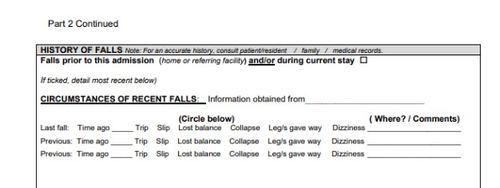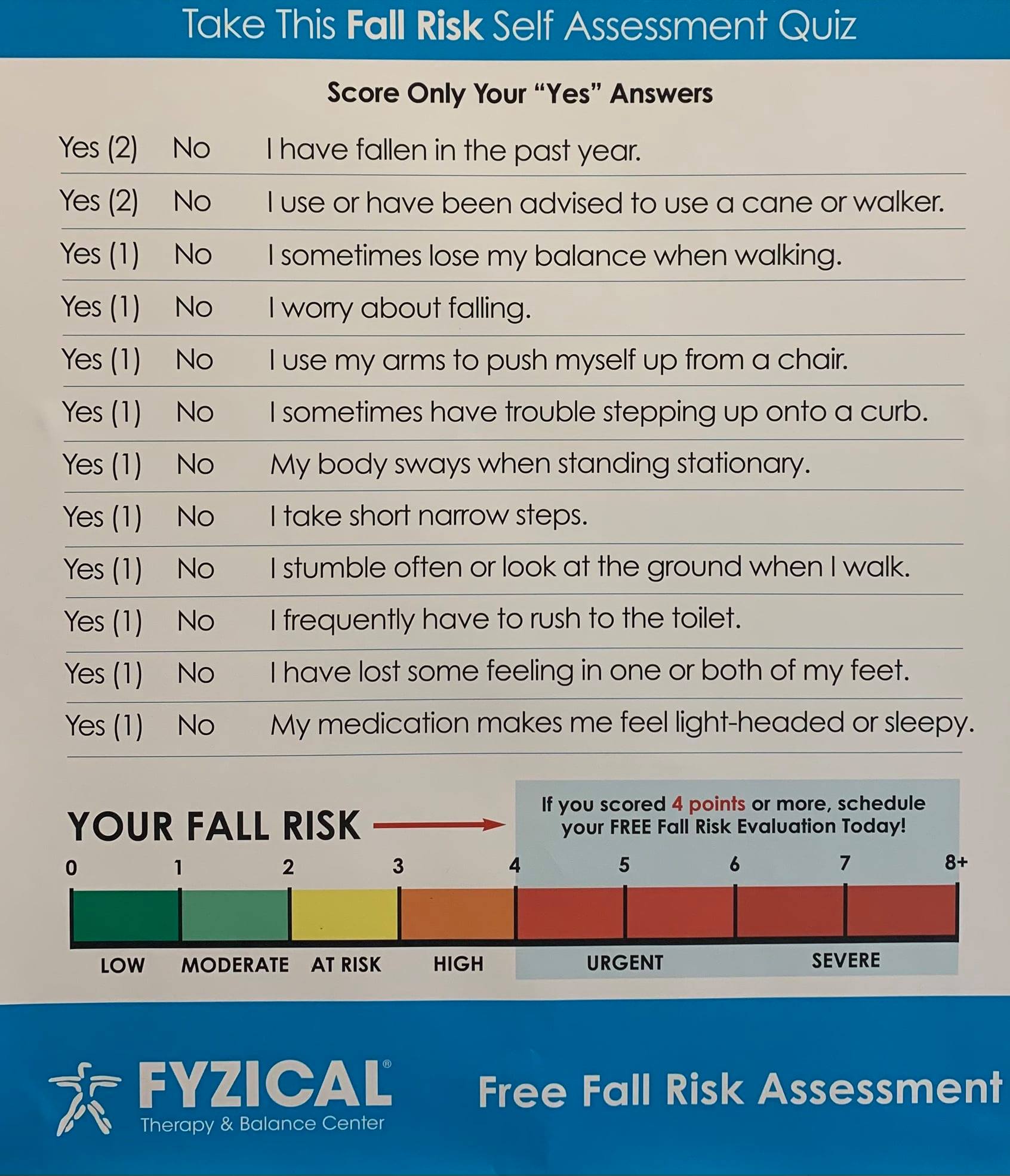The Definitive Guide to Dementia Fall Risk
The Definitive Guide to Dementia Fall Risk
Blog Article
Dementia Fall Risk Fundamentals Explained
Table of ContentsNot known Facts About Dementia Fall RiskDementia Fall Risk for BeginnersThe Facts About Dementia Fall Risk RevealedThe Buzz on Dementia Fall RiskIndicators on Dementia Fall Risk You Should Know
Make sure that there is a marked area in your medical charting system where staff can document/reference scores and document pertinent notes associated to drop avoidance. The Johns Hopkins Fall Risk Evaluation Device is one of lots of tools your team can utilize to help protect against negative clinical occasions.Patient drops in healthcare facilities are common and devastating unfavorable occasions that linger regardless of decades of initiative to minimize them. Improving interaction across the assessing nurse, treatment team, individual, and patient's most involved loved ones may reinforce autumn avoidance initiatives. A team at Brigham and Female's Hospital in Boston, Massachusetts, looked for to develop a standard fall prevention program that focused around improved interaction and patient and family engagement.

The development group stressed that successful execution depends on client and team buy-in, combination of the program right into existing workflows, and fidelity to program procedures. The team kept in mind that they are grappling with how to make sure connection in program application throughout durations of dilemma. During the COVID-19 pandemic, as an example, a rise in inpatient drops was associated with restrictions in person engagement in addition to restrictions on visitation.
Not known Details About Dementia Fall Risk
These cases are usually thought about preventable. To apply the treatment, companies need the following: Access to Fall TIPS resources Fall TIPS training and re-training for nursing and non-nursing team, consisting of new nurses Nursing workflows that enable patient and family members involvement to perform the falls assessment, guarantee use the prevention plan, and perform patient-level audits.
The outcomes can be extremely detrimental, often increasing patient decrease and triggering longer healthcare facility remains. One study approximated remains boosted an extra 12 in-patient days after a client fall. The Loss TIPS Program is based on engaging people and their family/loved ones throughout 3 primary procedures: evaluation, individualized preventative treatments, and auditing to make certain that individuals are participated in the three-step fall avoidance process.
The individual assessment is based upon the Morse Fall Range, which is a verified loss danger analysis tool for in-patient hospital setups. The range consists of the six most typical factors clients in hospitals drop: the patient autumn background, high-risk problems (including polypharmacy), use IVs and other exterior gadgets, psychological status, gait, and movement.
Each threat element web links with one or more workable evidence-based treatments. The nurse produces a strategy that integrates the treatments and is noticeable to the care team, individual, and family members on a laminated poster or published visual aid. Registered nurses create the plan while meeting the patient and the person's family.
Dementia Fall Risk Fundamentals Explained
The poster functions as an interaction tool with other members of the patient's care group. Dementia Fall Risk. The audit element of the program consists of assessing the client's understanding of their risk elements and prevention plan at the click over here now device and medical facility levels. Registered nurse champions conduct at the very least 5 specific interviews a month with clients and their families to examine for understanding of the fall prevention strategy

An approximated 30% of these drops outcome in injuries, which can vary in extent. Unlike various other negative events that call for a standard professional action, autumn avoidance depends highly on the needs of the person. Including the input of individuals who know the individual finest enables better personalization. This method has confirmed to be much more effective than autumn avoidance programs that are based largely on the production of a threat score and/or are not personalized.
A Biased View of Dementia Fall Risk

Based upon auditing outcomes, one website had 86% compliance and 2 sites had over 95% conformity. A cost-benefit evaluation of the Fall suggestions program in 8 healthcare facilities estimated that the program expense $0.88 per individual to implement and led to financial company website savings of $8,500 per 1000 patient-days in direct expenses connected to the avoidance of 567 tips over 3 years and 8 months.
According to the technology team, organizations thinking about executing the program must perform a readiness assessment and falls prevention spaces evaluation. 8 In addition, organizations must make certain the essential infrastructure and workflows for implementation and establish an application strategy. If one exists, the company's Fall Prevention Task Force ought to be associated with planning.
All About Dementia Fall Risk
To start, organizations should ensure conclusion of training modules by registered nurses and nursing assistants - Dementia Fall Risk. Healthcare facility staff should analyze, based upon the needs of a healthcare facility, whether to site link use a digital wellness record hard copy or paper version of the fall avoidance plan. Implementing teams must recruit and educate nurse champs and develop processes for bookkeeping and reporting on loss data
Staff require to be associated with the process of upgrading the operations to involve clients and family in the analysis and avoidance plan procedure. Systems ought to remain in place to ensure that devices can comprehend why a loss happened and remediate the reason. Much more particularly, nurses should have channels to give ongoing responses to both personnel and unit management so they can adjust and boost autumn prevention process and communicate systemic issues.
Report this page